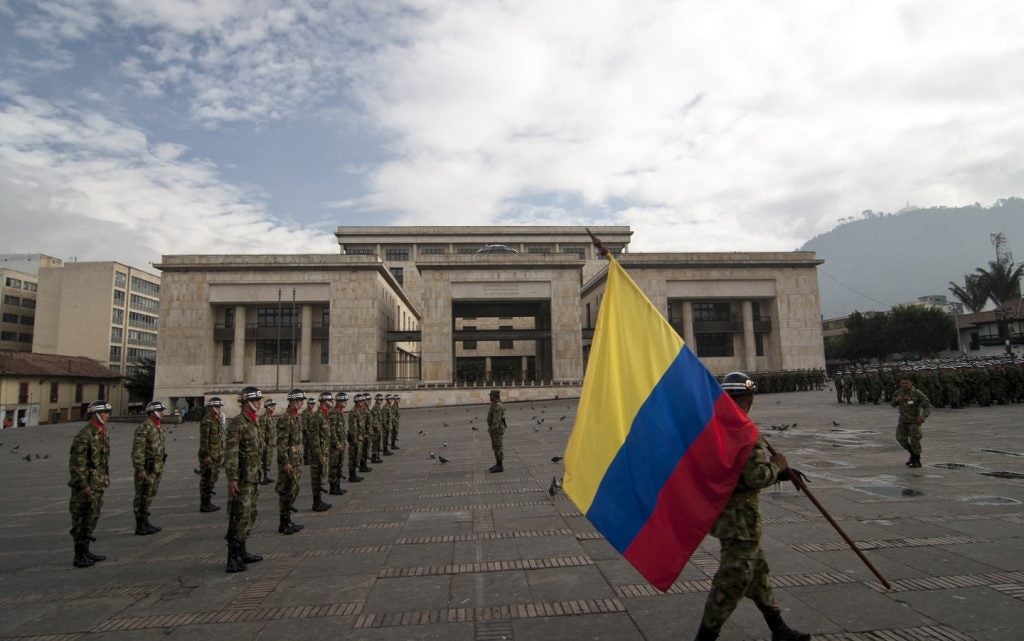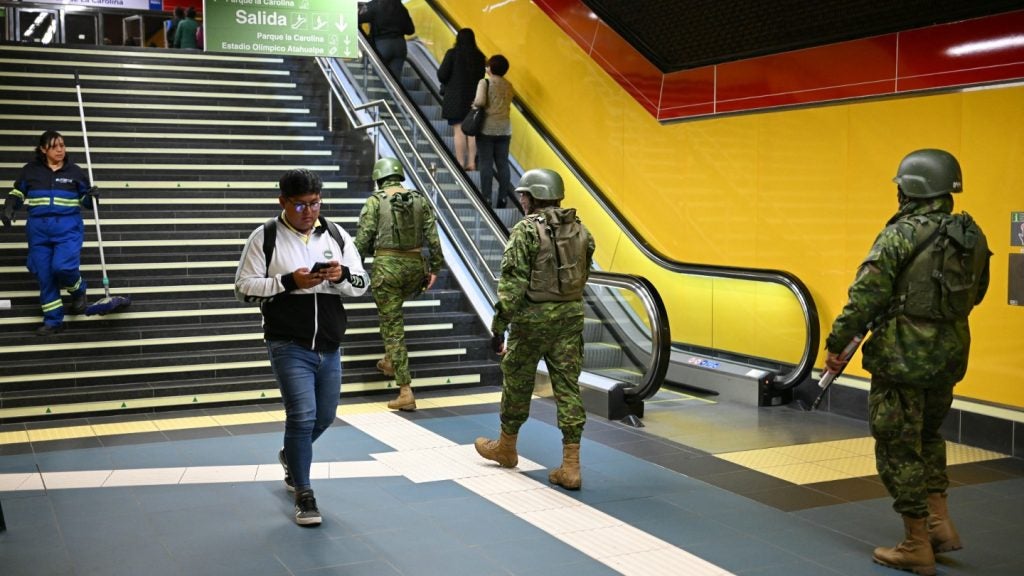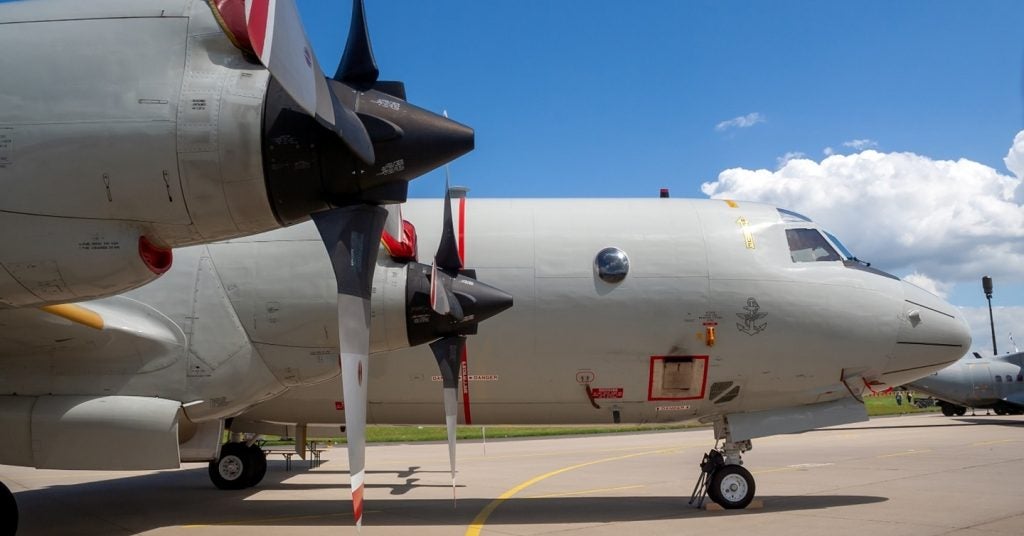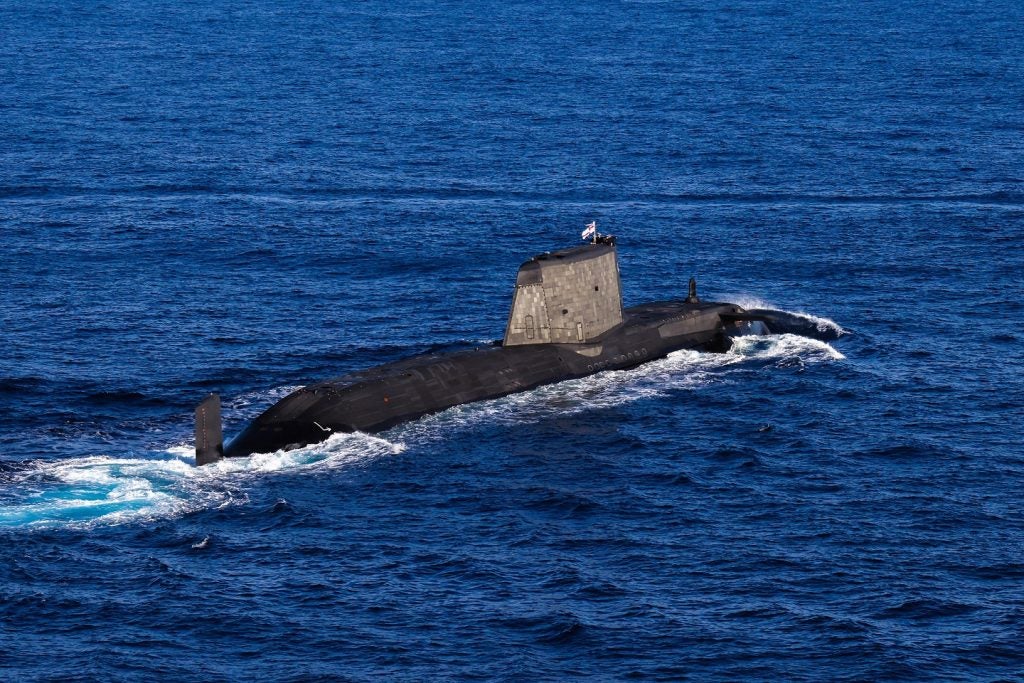
Turkey has extended the work of its Oruc Reis survey vessel in the Mediterranean in a move that will likely add to already high tensions between it and Greece.
The ship has been operating alongside vessels from the Turkish Navy in a disputed area of the Mediterranean. Disputes over the waters have increased tensions between the two NATO allies and saw a collision between a Turkish frigate and a Greek ship.
The Turkish vessel has been undertaking seismic surveys, which are a preliminary step for oil and gas exploration. Greece has called the Turkish survey operation ‘illegal’ and ‘threatening to peace’.
Despite being NATO allies, Turkey and Greece have a long had an uneasy relationship, in part stemming from disputes in the Aegean Sea which separates the two countries and the invasion of Cyprus in the 1970s.
In response to the tensions, Greece has been backed by allies including the United Arab Emirates (UAE) and France, the latter has bolstered its military presence in the region deploying fighter jets and maintaining the deployments of some vessels.
On Twitter, French President Emmanuel Macron said the ‘situation in the eastern Mediterranean is worrying’. Macron said that Turkish oil exploration ‘must end’ to allow for a peaceful dialogue between Turkey and Greece. Macron added that he would ‘temporarily strengthen’ French military presence in the area.
How well do you really know your competitors?
Access the most comprehensive Company Profiles on the market, powered by GlobalData. Save hours of research. Gain competitive edge.

Thank you!
Your download email will arrive shortly
Not ready to buy yet? Download a free sample
We are confident about the unique quality of our Company Profiles. However, we want you to make the most beneficial decision for your business, so we offer a free sample that you can download by submitting the below form
By GlobalDataTurkey and France also have geopolitical tensions, with both countries supporting different sides in Libya’s ongoing civil war.
Greece and the UAE are also soon set to start joint military exercises in the region; the US Navy’s “USS Hershel “Woody” Williams is also in the region, however, this is reportedly part of previously scheduled operations.
Turkey has denied its activities are illegal. Speaking ten days ago Turkish Minister of National Defence Hulusi Akar said: “Greece does not recognise international law in the Aegean and the Mediterranean, only selfish, one-sided demands and approaches that protect their own interests are incompatible with the facts.
“We are in an effort to explain that the activities carried out within this framework are not compatible with reason, logic and law and that doing this in this way does not benefit anyone.”
Last week, NATO Secretary-General Jens Stoltenberg discussed the dispute with Turkish Foreign Mevlüt Çavuşoğlu. During the phone call Stoltenberg ‘stressed’ that dialogue between the two countries was needed to cool tensions and was in the best interests of the region.
During an interview with CNN, Greek Prime Minister Kyriakos Mitsotakis called on the two countries to ‘talk as civilised neighbours’. During the interview, Mitsotakis added: “Turkey should be aware that if it does not change its attitude, there will be consequences and its overall relationship with Europe will be jeopardized. Because challenges of this kind cannot go unanswered. Not only from Greece or Cyprus but also from Europe as a whole.”
Both countries have signed agreements with regional partners claiming jurisdiction over the disputed area of the Mediterranean. Egypt and Greece have signed an agreement laying out the boundaries between the two’s maritime control; Turkey has a similar agreement with the UN-backed government of Libya. In its deal, Turkey claimed rights over areas that Greece says fall under its control.







